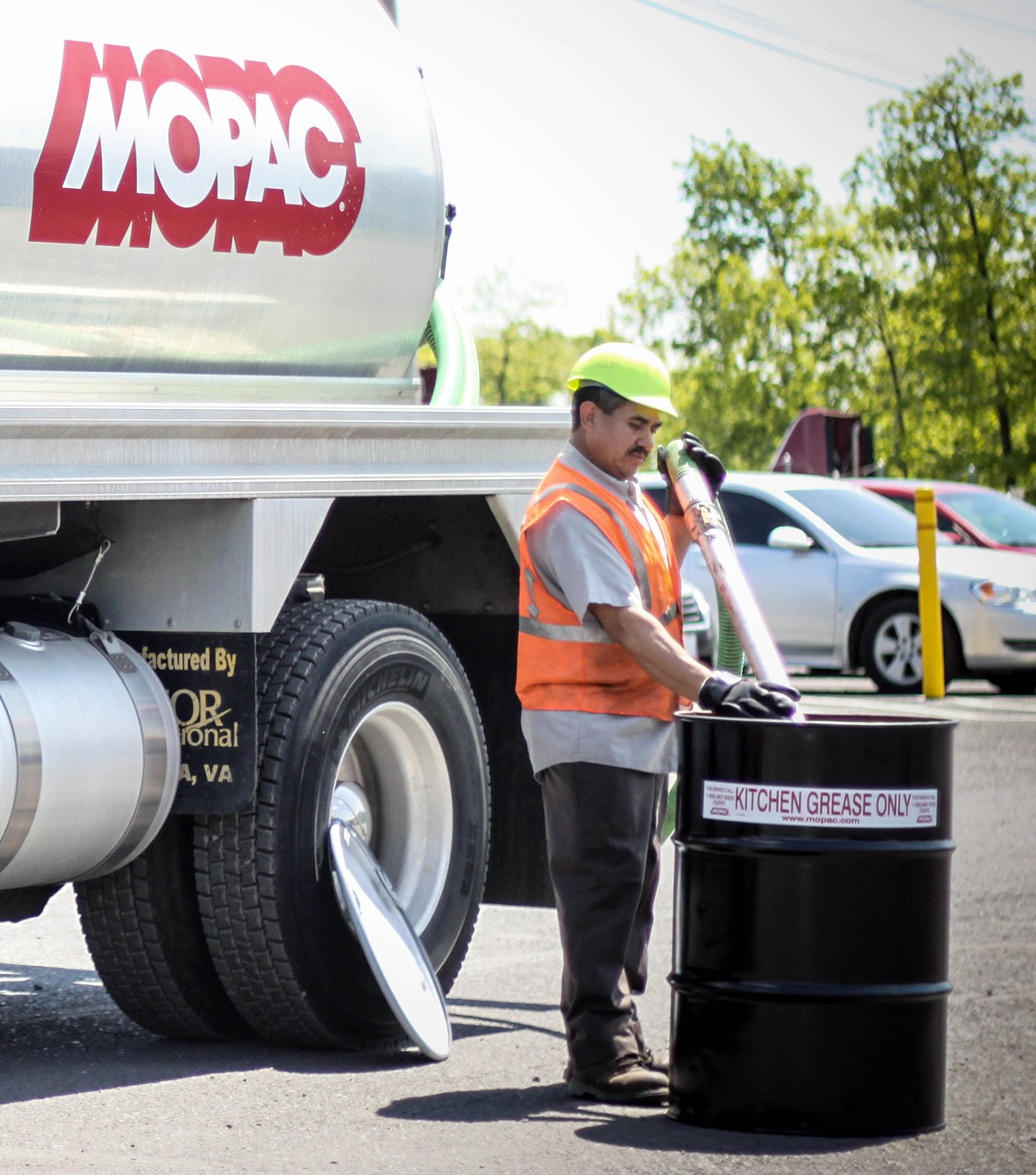In the bustling world of restaurant management, efficiency and sustainability are paramount. One often overlooked yet critical aspect of achieving these goals is proper cooking oil management. At Mopac, we specialize in collecting and recycling used cooking oil, helping businesses not only maintain high standards of cleanliness and efficiency but also contribute positively to the environment. Here’s how mastering cooking oil management can enhance your restaurant’s operations and sustainability efforts.
Choosing the Best Cooking Oil for Your Needs
Selecting the right cooking oil is the first step towards optimal kitchen efficiency. Consider these factors when making your choice:
- Smoke Point: Different oils have varying smoke points. High smoke point oils like canola, peanut, and sunflower oil are ideal for frying, while olive oil is better suited for low-heat cooking.
- Flavor Profile: The flavor of the oil can affect the taste of your dishes. Neutral oils are versatile, while those with distinct flavors can enhance specific recipes.
- Nutritional Value: Oils vary in their health benefits. For instance, olive oil is rich in antioxidants and healthy fats, making it a preferred choice for health-conscious menus.
Efficient Cooking Oil Usage
To maximize the lifespan and efficiency of your cooking oil, implement these best practices:
- Monitor Temperature: Use a thermometer to maintain the ideal frying temperature between 350°F and 375°F. Overheating can degrade oil faster.
- Filter Regularly: Regularly filter your oil to remove food particles. This prolongs the oil’s usability and maintains food quality.
- Proper Storage: Store used oil in a cool, dark place in a clean, airtight container to prevent spoilage and contamination.
Environmental Impact and Sustainability
Proper management and recycling of used cooking oil are essential for environmental sustainability. Mopac’s recycling services help transform waste oil into valuable resources like biofuels and animal feed. Here’s why recycling is crucial:
- Reduces Waste: Recycling used cooking oil reduces the amount of waste sent to landfills, lowering your restaurant’s environmental footprint.
- Produces Renewable Energy: Used cooking oil can be converted into biodiesel, a cleaner alternative to fossil fuels.
- Supports Local Communities: By partnering with Mopac, you contribute to local sustainability efforts and support green jobs.
Partnering with Mopac for Used Cooking Oil Recycling
Mopac provides comprehensive used cooking oil collection and recycling services designed to meet your restaurant’s needs. Here’s what you can expect:
- Reliable Collection: Our scheduled pickups ensure that your used oil is collected efficiently, minimizing disruption to your operations.
- Transparent Rebates: We offer clear and fair rebate programs, providing financial incentives for your recycled oil.
- Expertise and Heritage: With over a century of experience, Mopac combines tradition with innovation to deliver exceptional service.
Enhancing Operational Efficiency
Efficient oil management not only promotes sustainability but also boosts your restaurant’s operational efficiency. Here’s how:
- Cost Savings: Proper oil usage and recycling can significantly reduce your cooking oil expenses.
- Improved Food Quality: Fresh, well-maintained oil ensures consistently high-quality fried foods, enhancing customer satisfaction.
- Streamlined Operations: Reliable oil collection and disposal services streamline your kitchen operations, allowing staff to focus on what they do best – cooking great food.
Conclusion
Investing in proper cooking oil management is a win-win for your restaurant’s efficiency and sustainability goals. By choosing the right oil, implementing best practices, and partnering with Mopac for recycling, you can achieve significant operational benefits while contributing to a greener future.
For more information on how Mopac can help your restaurant optimize its cooking oil management, visit our website or contact us today.




